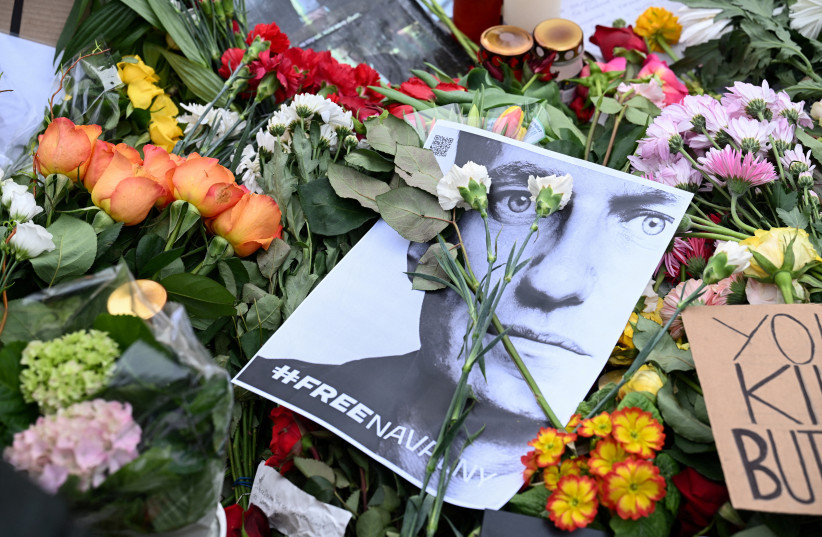Having learned that the neighbor he bedded is pregnant, David resolved to cover up the crime he committed while her husband was away, fighting in one of the king’s wars.
Thus began the great tragedy that continued with the king’s summoning from the front of the betrayed Uriah, assuming the soldier would spend a night with his wife and thus own the bastard that was actually the king’s.
When Uriah failed to play his part, refraining from entering his home even after the king dined with him and got him drunk, David’s one sin, adultery, produced an even bigger sin, murder, as he ordered Uriah’s commander to position him “where the fighting is fiercest” (II Samuel 11:15).
“The sword always takes its toll,” said an eye-rolling David when told Uriah had fallen, as if the innocent man’s death was some force majeure, and not the king’s own plot and blame.
The Bible is full of political corruption, but David’s is exceptional in its engine, which was not paranoia, greed, or megalomania, but fear of public opinion; fear that the king’s crimes would become publicly known.
David’s cover-up failed, as he was confronted by a man with no treasure, arms, or troops, but with unlimited courage, morality, and truth, a man called Nathan who told the omnipotent king to his face: “You have put Uriah… to the sword; you took his wife… and had him killed by the sword.”
This, in essence, is what Russian dissident Alexi Navalny did to his country’s ruling elite as he exposed its thefts, embezzlements, briberies and lies.

Unlike Nathan’s rebuke, which made David confess, Navalny’s admonition only invigorated its subjects, who had him poisoned, tried, convicted, and then exiled to the arctic jail where last week, at age 47, he was found dead.
Fortunately, nothing of this sort can happen in Israel, where speaking truth to power is a Jewish value and civic norm. This doesn’t mean that the current government knows to face its critics as humbly as David faced his. A case in point is what it wants to do to the Israel Prize, of all things, on Independence Day 2024, of all years.
An engine of national pride
AWARDED ANNUALLY since 1953 in a festive ceremony that seals Independence Day, the Israel Prize was instituted to celebrate Israeli excellence in specific categories: social sciences, liberal arts and Jewish studies; life sciences and exact sciences; arts and sports; and general life achievement.
The laureates’ list reads like a who’s who of the geniuses, literati, and self-made achievers that Israel has produced. From physicists, chemists, biologists, mathematicians, philosophers, and historians, to novelists, poets, rabbis, industrialists, architects, sculptors, singers, and athletes, they represent all the scholarship, creation, originality, and enterprise for which Israel wants to be known.
Over its 71 years, the prize became the engine of national pride and inspiration that its creators had in mind. Watching its parade of scholars, achievers, and visionaries, Israelis of all walks learn what great things are being done here, and how anyone with talent and ambition can make it in the Jewish state.
That’s how it’s been, year after year, since 1953, and that’s how it won’t be in 2024. This year, Education Minister Yoav Kisch decided to set aside the prize’s ordinary categories, and replace them with a new one – “civic heroism and solidarity.”
On the face of it, it’s a sound wartime choice. In fact, it’s a cynical attempt to neutralize what the ruling party fears is an opportunity for its critics to make some very loud noise. Kisch’s fears are well founded, but his solution is a moral disgrace, and also a political shot in the foot.
THE PRIZE sure stirred scandals.
Golda Meir’s nomination in 1975 was protested by war veterans who blamed her for the Yom Kippur War’s outbreak. Philosopher Yeshayahu Leibowitz refused the prize in 1993 after prime minister Yitzhak Rabin protested his call on soldiers not to serve beyond the Green Line. Political scientist Zeev Sternhell’s nomination in 2008 sparked similar protests, as did sculptor Igael Tomarkin’s in 2004.
Most ominously, from Kisch’s viewpoint, painter Moshe Gershuni said after his nomination in 2003 that he wouldn’t attend the ceremony because he didn’t want to shake prime minister Ariel Sharon’s hand.
This year’s atmosphere is a hundred times more charged than in any of those years. People are livid at the politicians who inspired an era punctuated by invasion, massacre, and wholesale grief. Kisch has good reason to fear that a set of real Israel Prize laureates will use the award ceremony to attack the establishment that led this country where it has arrived.
In a year like this one, real laureates’ potential protestation can echo resoundingly, and help deliver the political judgment Likud fears. Changing the prize’s subject, from merit to patriotism, can help detonate this bomb because there will be no laureates with big names, big careers, and big mouths.
The education minister’s awareness of Likud’s vulnerability is not a matter of speculation, because five days after October 7 he said publicly: “It happened during our rule,” which means “we are responsible,” because “we dealt with nonsense, we forgot where were live,” a reference to the mayhem sparked by Likud’s constitutional misadventure while the invasion approached.
That statement was brave. Manipulating the Israel Prize is not brave. It’s cowardly. It’s what one does when instead of confessing, as David did, one kills the prophet, as Vladimir Putin does.
Not only is such escapism immoral, it’s also inefficient. As David learned in the palace of his sins, the more the king will escape the more he will be chased; chased by the public’s scrutiny, pursued by justice’s verdict, and haunted by God’s call.
www.MiddleIsrael.net
The writer, a Hartman Institute fellow, is the author of the bestselling Mitzad Ha’ivelet Ha’yehudi (The Jewish March of Folly, Yediot Sefarim, 2019), a revisionist history of the Jewish people’s political leadership.
